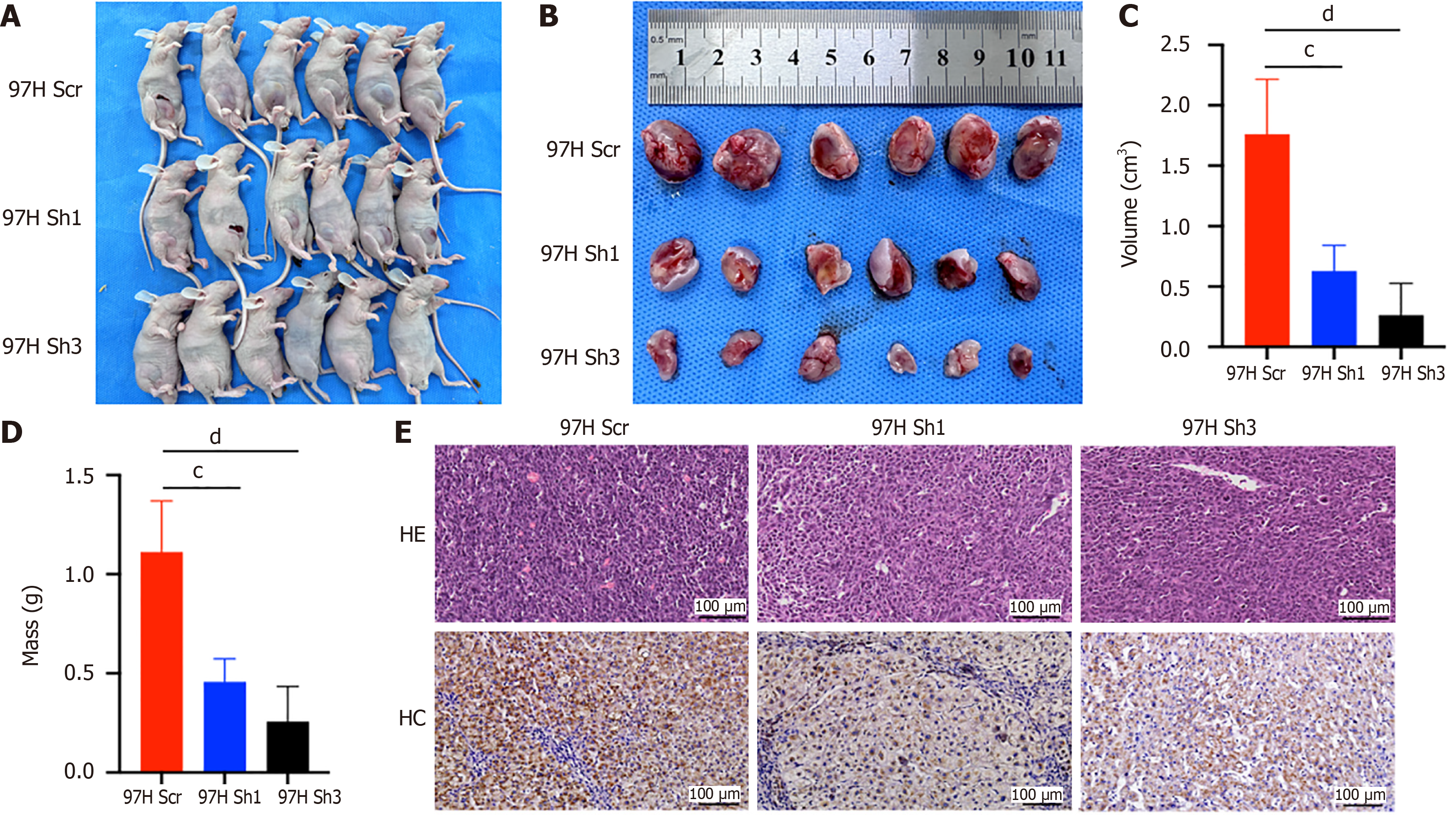Copyright
©The Author(s) 2025.
World J Gastroenterol. Jan 7, 2025; 31(1): 101198
Published online Jan 7, 2025. doi: 10.3748/wjg.v31.i1.101198
Published online Jan 7, 2025. doi: 10.3748/wjg.v31.i1.101198
Figure 5 Inhibition of ASH1L expression affects tumorigeneses of hepatocellular carcinoma cells in vivo.
A: The 97H scrambled, 97H Sh1, and 97H Sh3 cell lines were individually implanted into the right inguinal region of male BALB/c nude mice, aged 4 to 6 weeks, to establish subcutaneous xenograft models; B: Photographs were taken to document the appearance and progression of subcutaneous tumors in the xenografted BALB/c nude mice across the different experimental groups; C and D: Quantitative analysis was conducted to measure and compare the tumor volume and mass among the various groups of BALB/c nude mice, providing a numerical assessment of tumor growth; E: Tumor sections from the different groups of BALB/c nude mice were subjected to hematoxylin and eosin staining and immunohistochemistry to evaluate histological characteristics and protein expression within the tumors, respectively. cP < 0.001. dP < 0.0001. Scr: Scrambled; HE: Hematoxylin and eosin staining; IHC: Immunohistochemistry.
- Citation: Yu XH, Xie Y, Yu J, Zhang KN, Guo ZB, Wang D, Li ZX, Zhang WQ, Tan YY, Zhang L, Jiang WT. Loss-of-function mutations of microRNA-142-3p promote ASH1L expression to induce immune evasion and hepatocellular carcinoma progression. World J Gastroenterol 2025; 31(1): 101198
- URL: https://www.wjgnet.com/1007-9327/full/v31/i1/101198.htm
- DOI: https://dx.doi.org/10.3748/wjg.v31.i1.101198









